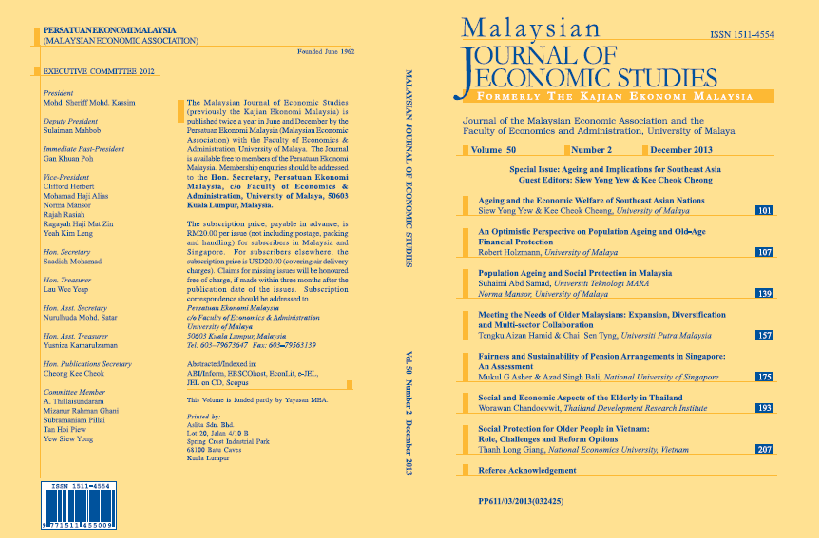Meeting the Needs of Older Malaysians: Expansion, Diversification and Multi-sector Collaboration
Keywords:
Malaysia, pension, provident fund, social security, welfareAbstract
The older population (aged 60 years or over) in Malaysia has grown from 0.5 million in 1970 to almost 2.3 million in 2010, making up about 8 per cent of the current total population. By 2020, one in ten Malaysians will be an older person. Older Malaysians are a heterogeneous group with diverse demographic, socio-economic, cultural and religious characteristics. A social policy framework that recognises the evolving nature of needs in a rapidly ageing population is fundamental to Malaysia’s development and growth. This paper assesses the adequacy, affordability, sustainability, equitability, predictability and robustness of current policies, programmes and services to meet the needs of the ageing population in Malaysia. Based on the World Bank’s multi-pillar pension taxonomy, the analysis will focus on the social assistance scheme for the elderly (BOT), pay-as-you-go financed state pension (JPA) and defined contribution funds (EPF). Between conditional cash transfers and mandatory retirement savings, the central role of informal support systems in old age has often been overlooked. Results from past studies have shown that the family has played a major role in providing care and support for the aged in Malaysia. A majority of older Malaysians still co-reside with their adult children and receives financial assistance from them. Older Malaysians today are living longer, are better educated and wealthier, and they will become consumers of a burgeoning silver hair industry. Balancing social and economic priorities in national development is a challenging task, but the two goals are not mutually exclusive. Myopic focus on welfarism or paternalism will encourage the mind-set of treating an ageing population as a dependent population, instead of finding ways of empowering them. An inter-dependence approach, rooted in a mix of individual responsibility, family obligations, active civil society and state provisions (regulatory and non-regulatory), will enable a more broad-based and sustainable solution to meet the present and future needs of the elderly.

